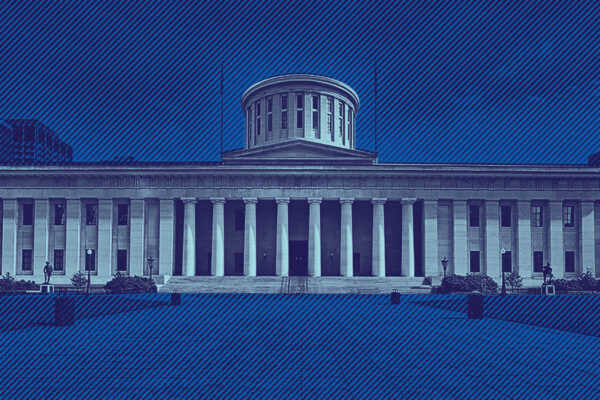Chair Manchester, Vice Chair Cutrona, Ranking Member Denson, and members of the House Families, Aging, and Human Services Committee, thank you for the opportunity to provide opponent testimony on House Bill (HB) 454. My name is Sean McCann, and I serve as a Policy Strategist for the ACLU of Ohio.
In the interest of brevity, I will avoid restating the evidence-based testimony of the several medical professionals you heard from earlier this year. I will also point you to powerful, moving written testimony¹ from my colleague Micah Mitchell, who could not be here to testify in-person today. Taking a few moments to read about his lived experience will be well worth your time.
Simply put, HB 454 would be a disaster for youth experiencing gender dysphoria and their families. We know that trans & gender-nonconforming youth suffer from higher rates of suicidal ideation than their peers. They are already stigmatized and made to feel like they do not belong, without a blanket ban on this lifesaving care.
HB 454 also represents government overreach into deeply personal and private decisions that should be left to kids, their parents, and their medical providers. The government has no place intervening in these decisions. For all we have heard recently about parental rights, HB 454 directly inhibits parents’ freedom to make the best decisions for their children. I would ask why, in some instances, parental rights are elevated above other concerns, but in this particular instance, parental rights are cast aside. The intersection of competing rights can often be a delicate balance. The state legislature putting its thumb on the scale with a unilateral action like this would be entirely inappropriate and would disrupt that balance.
HB 454’s provisions prohibiting private insurers and Medicaid from covering this care are also concerning. Again, these decisions belong in the hands of medical professionals, not the state legislature. Denying this care to Medicaid recipients, particularly, will have a disproportionate impact on the most vulnerable and disadvantaged LGBTQ+ youth in our state.
The provisions compelling school staff to disclose information about a child’s gender identity carry great risk for these children. As much as we would all like to believe that every child will be accepted for who they are and that every parent will do what is best for their child, sadly, we know this is not always the case. LGBTQ+ youth are 2.2 times more likely to report homelessness than straight youth, according to a 2018 study² from Chapin Hall at the University of Chicago.
Vitally, medical intervention is not exclusive to transgender folks, as my colleague Micah notes in an informative piece³ on this topic. In fact, “cisgender boys are prescribed testosterone to address delayed puberty onset, and cisgender girls are prescribed estrogen and progesterone for a host of reasons, including birth control and menstrual regulation. Children are routinely prescribed puberty blockers if they experience premature puberty.” Should these children also be deprived of care that their medical providers deem necessary and appropriate?
Additionally, I should note that the U.S. District Court for the Southern District of Ohio found in its 2020 Ray v. McCloud⁴ ruling that transgender people make up a quasi-suspect class entitled to heightened scrutiny in review of their equal protection claims.
The bottom line, though, is that HB 454 would make Ohio a substantially less safe and welcoming place for transgender and gender-nonconforming youth; as such, the ACLU of Ohio emphatically opposes it. I would respectfully implore members to listen carefully to the testimony of trans youth and their loving families—they, and their medical providers, are the experts on gender-affirming care.
Thank you again, and I would be happy to answer any questions committee members may have.
¹Mitchell, Micah. “House Bill 454 - Opponent Testimony.” ACLU of Ohio, 1 June 2022, https://www.acluohio.org/en/news/house-bill-454-opponent-testimony .
²Morton, M. H., Samuels, G. M., Dworsky, A., & Patel, S. (2018). Missed opportunities: LGBTQ youth homelessness in America. Chicago, IL: Chapin Hall at the University of Chicago.
³Mitchell, Micah. “Trans Healthcare Is Lifesaving.” ACLU of Ohio, 7 June 2022, https://www.acluohio.org/en/news/trans-healthcare-lifesaving.
⁴U.S. District Court for the Southern District of Ohio. Ray v. McCloud. no. 2:18-cv-22, 16 Dec. 2020.


